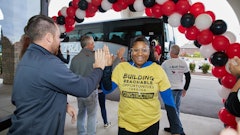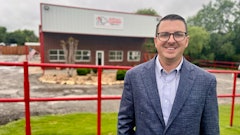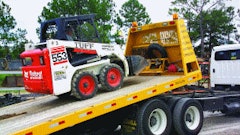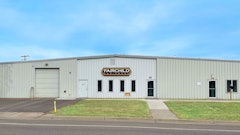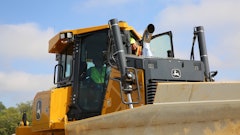
Concrete contractors who own their own businesses often find themselves working with family members. Although knowing each other well can be beneficial on the job, problems can occur when personal agendas carry over into the business setting.
Key issues to consider
Family business consultant Laura Michaud of The Michaud Group says four main issues must be addressed for relatives to run a business effectively. The first is estate planning, which is crucial because if it is not done properly, much or all of the wealth accumulated by a family business can be lost to estate taxes. "If the senior owner dies, that could kill the company because the government will take too much money," she says.
Business owners must also make financial plans for their retirement. "The senior owners are used to living a certain lifestyle based on their earnings from the company," she says. "In many family businesses, what you have, which is bad, is the 85-year-old owner taking a large salary even though they may not be contributing to the running of the business." This raises a company's fixed expenses and drains it financially.
Plans must also be made to determine who will run the company once the current owners leave. Michaud says succession planning for family businesses is difficult when the owner's children are uninterested in taking over or lack the skills to do so. For the business to continue will require either training the children in running the company or devising a different exit strategy in which outsiders are involved.
The most important issue confronting family owned businesses is communication. "In a normal business, if you have personality conflicts with someone, you can fire them," Michaud notes. "In a family business, that's not always the case. In addition, if you have a conflict at home that is brought into the business, it's dangerous. So it's extremely important in a family business to have good communication." Communication issues are the ones Michaud is most frequently called on to solve, although that is typically not the problem family businesspeople believe they have. She said conflict management is the hardest thing for people to deal with, especially with family members, because emotions can run wild.
The company is a business
Michaud's top recommendation for keeping personal agendas from interfering with business operations is to separate business and family by treating the business like a business.
"Conduct family business meetings with appropriate family members attending, with a formal agenda to discuss matters as they relate to the business," she stresses. "This is one of the most important things to do to maintain professionalism and keep the family in harmony. What happens is the family has certain dynamics, so many times they need someone to show them and teach them how to run these meetings." Without good meeting management skills, the meeting will fail.
She also recommends setting up an independent professional advisory board or board of directors. Each board member must have no conflict of interest or other business involvement with the company, which would disqualify the company's attorney and accountant. These people will become professional advisers who will help the owners make business decisions.
Treat family like everyone else
Ruttura & Sons has been in business since 1918 when Dominic Ruttura began doing concrete sidewalks and curbs. Son Salvatore expanded the business into residential foundations with limited commercial and industrial work. But when his son Tommy, the current president, took over in 1971, big changes occurred. His dad had only operated the business during warm weather, and Tommy decided he wanted the more stable income a year-round operation doing large commercial jobs would bring.
"As we grew up, we were in a real family business," Tommy explains. "My mom was the bookkeeper. My dad was not a boss; he was a working man. Everything in the family ran through the business. We don't do it that way now. When I bought my father out in 1971, I drew a line in the sand. I wouldn't let my mom do the books. I didn't want it to be run like a family business.
"I just decided I didn't want my wife in the business. And if my children were to come into the business, they had to ask me to come into it and they wouldn't be paid anymore than anyone else. They wouldn't be given shares of the business."
However, there are several family members working in the company today. Work responsibilities are divided somewhat geographically. Tommy handles the work from the New York City line east to Long Island while running the estimating and marketing staff. His much younger brother Peter, who is vice president, handles jobs in New York City and deals more with fieldwork and operations than Tommy.
Tommy's son Todd works for the company running equipment and supervising projects. "My son is a very bright young man," his dad says. "He didn't want to go to college. He had been hanging around me since he was a little boy. He knew everything about concrete pumps and the concrete business. He started at the bottom and slowly got better and better."
Tommy insisted that his daughter, Nicole Lindsey Hogan, get a college education and work somewhere else first before working for his company. Now she uses her accounting degree in her job as office manager and also supervises other company-owned businesses in real estate, concrete pumping and concrete recycling. Nichole observed office operations during her first six months on the job and then gave her father ideas about how to improve things and reduce costs. "She's developed a dozen different systems that have made things a hundred times better," he says.
The other key employees who have helped the business grow are people Tommy describes as great, smart and gifted in areas where he is not. Despite that, his philosophy rules and those who don't come to share his values end up leaving. "These businesses can't be run by committee," he said. "You've got to develop a vision and kick butt all day long."
The rule at Ruttura & Sons is that business stops when the family leaves for the day. Tommy said they don't talk business or take business calls at home.
Through his membership in the American Society of Concrete Contractors, Tommy participates in a MIX (Management Information eXchange) group with eight other contractors. When he needs help in deciding on new hires or equipment purchases, he consults these contractors, a method he prefers to asking his subordinates for assistance. He also has a construction consulting firm prepare an annual strategic plan and assist with other management issues.
Now 57, Tommy says since he enjoys his work so much, he'll never retire completely, but will gradually turn over the reins during the next 10 years. He sees both his brother and his son as possible successors as well as others in the firm.
"The biggest problems with family businesses are that wives and mothers get involved and they mix up succession with inheritance," he says. "Those things should never mingle. The mothers' responsibility for their children should stop at the business door. I think that's where most plans really fail. You can't just leave everything equally to the kids, particularly when some are involved in the business and others are not."
Challenges for smaller firms
The size and age of a concrete contractor's business may determine which of Michaud's ideas they are likely to use. These two companies are typical of smaller, recently established firms.
Brothers Mike and Dave Verlennich started their business, Verlennich Masonry & Concrete, in 1999. They are equal partners even though Dave had previously owned a concrete business doing footings, foundations and sidewalks for seven years.
While each brother has primary responsibilities for different aspects of the business, there is much overlap in what they do.
Dave is in charge of production, scheduling, and research and development while Mike handles personnel, administrative work and some quality control.
"It's very advantageous because of our personalities that we can flip-flop," Mike says. "Certain customers take a liking to one partner or the other and when you recognize that, somebody steps back. We both bring unique skills to the table and although either of us could survive without the other, it would not be in the fashion that we currently exist." Business decisions are generally made jointly, though either one will step up and deal with an immediate issue if the other is unavailable.
Mike admits that working with his brother has not always been easy but they work things out.
"We've had some rocky times throughout our run together where there has been animosity," he confesses. "The odd thing for us, we're practicing Christians and our faith allows us to stay together. That might not be the case for other people. It probably allows us to keep the selfish desires at bay that have the tendency to tear things apart. It enables us to deal with things that we probably would not deal with well otherwise. The major stumbling block is always money and financial pressure. If you have a financial woe in the workplace, it also becomes a financial woe in the home. And it may not be that you don't have any money but just the feeling that someone else is getting more. It can tear families apart."
Mike's 17-year-old son is the only child working in the business as the others are too young. Although he has good skills, Mike said his son is not interested in continuing with the company. No plans for succession have been made, as both brothers are still young and anticipate working for many more years.
Stepping Stones, a decorative concrete firm, is owned by friends Gwen Stithem and Jenny Guedon. Gwen founded the business in 2002 after the death of her contractor husband and used his business contacts to get started. Although Jenny, who handles much of the paperwork, has only been with the company since 2005, Gwen's 23-year-old daughter Jayme has been a key employee since the start, handling estimates and concrete work while studying interior design. While Gwen says working together helps her relationship with her daughter, she notes, "We yell at each other about 10 percent of the time and get along great the rest of it."
Here the buck stops with Gwen. Although the three women discuss business decisions together, Gwen says she usually has the final say based on her greater experience. "Before a big purchase we talk about it to decide if it's going to make our job easier or help us make more money," she says. "Sometimes they want to walk away from jobs I want to take. I generally just say this is how we're going to do it. Jayme will say, 'It's not gonna work,' and sometimes it doesn't. She has some pretty good ideas and often I say, 'That's a good idea,' and we try it. We've learned a lot by doing it the wrong way first."
Jean Feingold is a Gainesville, Fla.-based freelance writer who frequently covers concrete and other construction-related topics.














